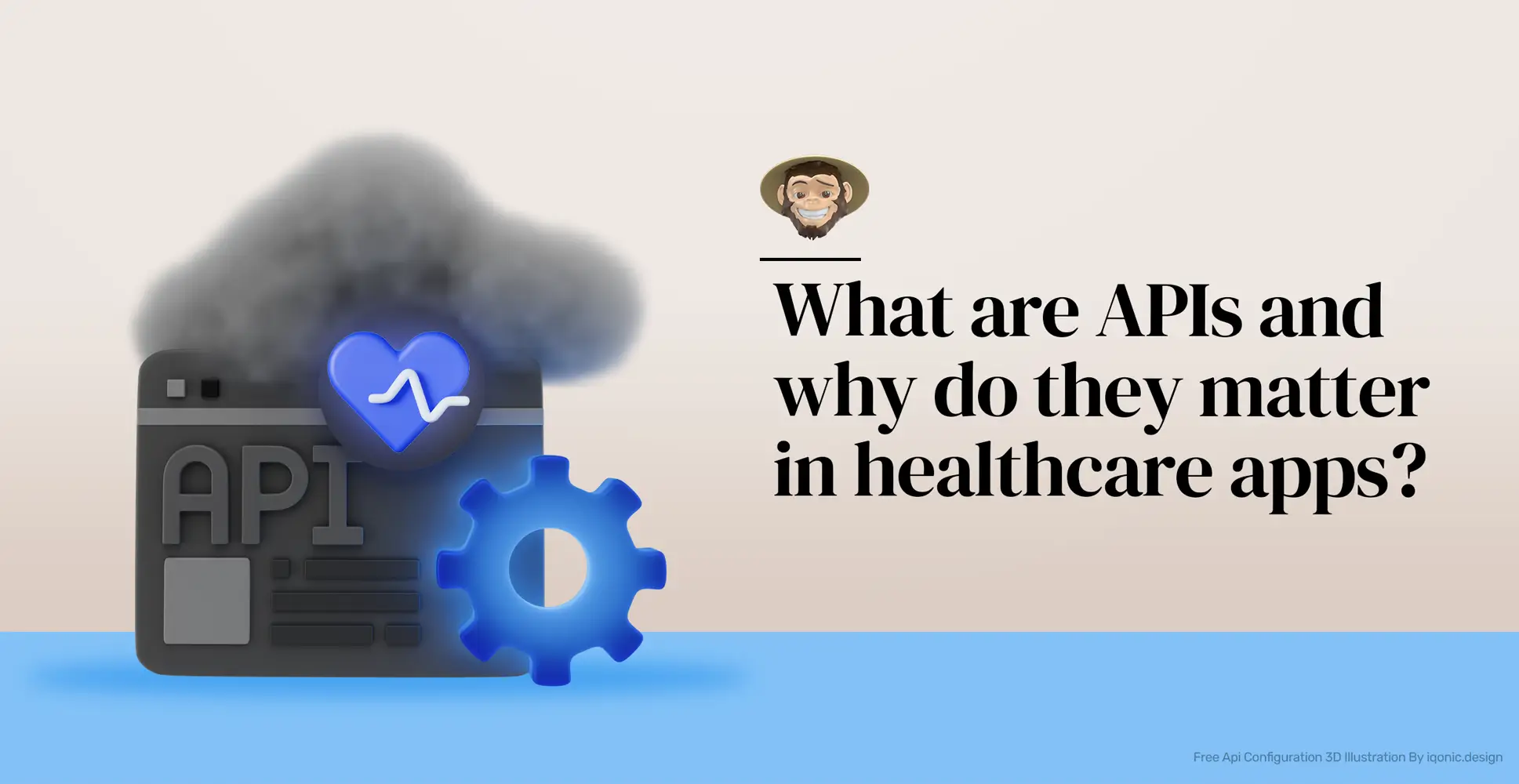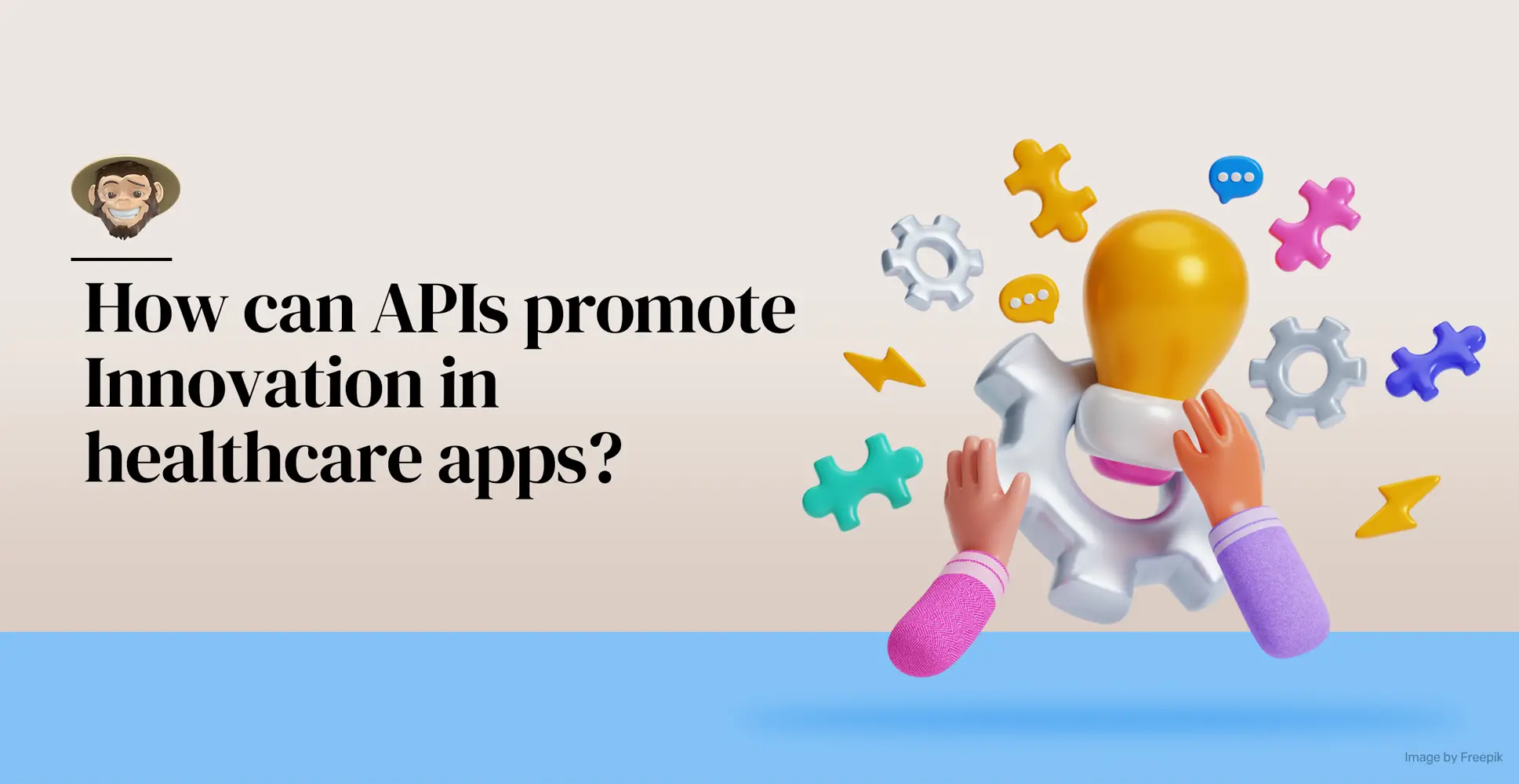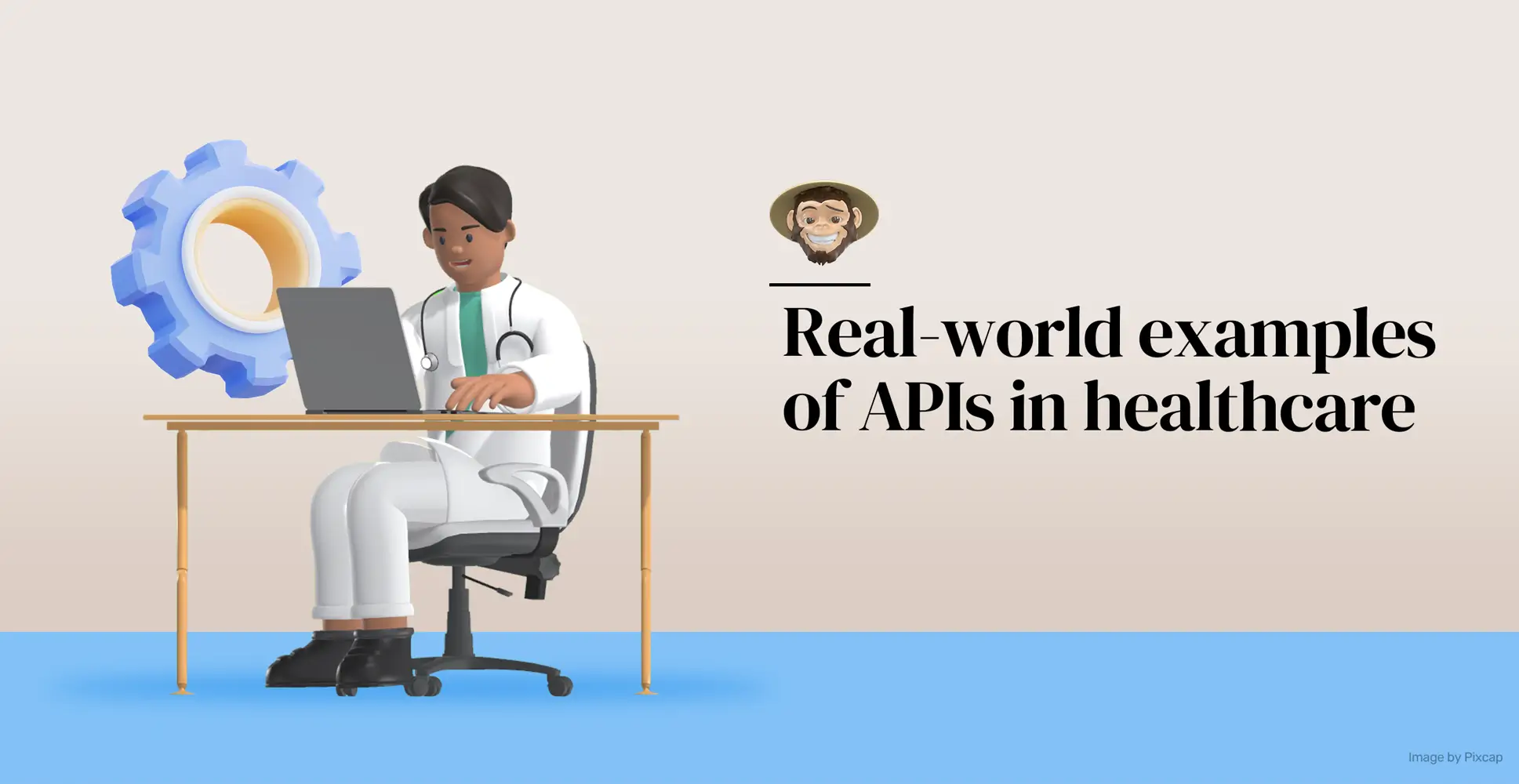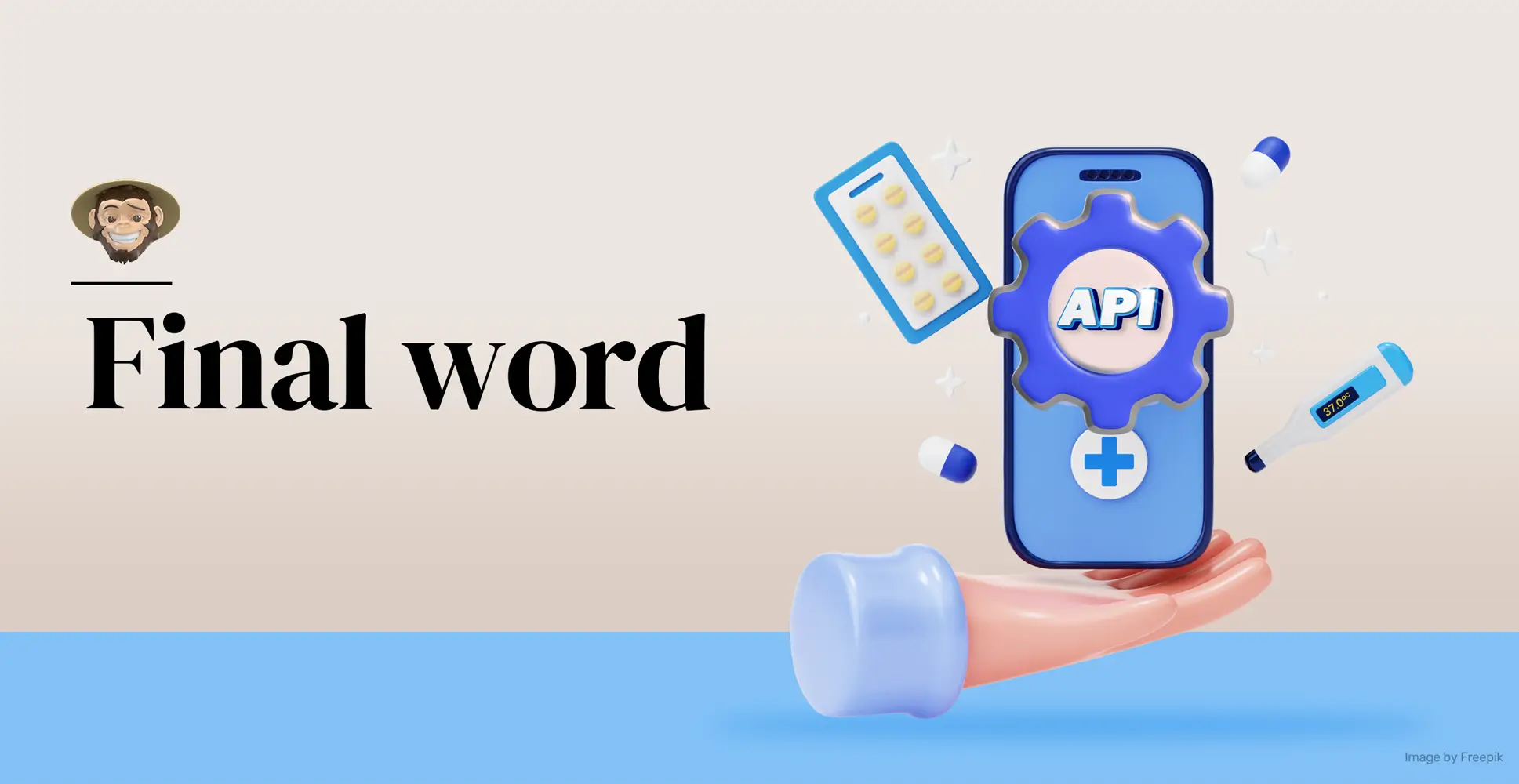APIs in healthcare apps are not just transforming the digital healthcare landscape; they are poised to revolutionize how developers build digital health solutions, opening up a world of exciting possibilities.
Technological innovation is everywhere. From retail shopping and dining to banking and investing, digital innovation is reshaping how we access goods and services and, in most cases, significantly improving their quality. In recent years, the healthcare industry has dipped its toes in this coveted innovation pool, and the world has started witnessing a significant shift towards healthcare applications and other digital health solutions that place a growing emphasis on leveraging technological innovation to improve patient outcomes, clinical decision-making, and healthcare management. At the epicenter of this shift lie Application Programming Interfaces (APIs), which are not just enabling communication but empowering patients, physicians, insurance companies, pharmacies, systems, applications, and other services to improve how they access healthcare services.
In this blog post, we will delve into the role of APIs in healthcare apps, exploring how they foster innovation in digital health solutions. We will also discuss their profound impact on shaping the future of mobile healthcare delivery.

What are APIs and why do they matter in healthcare apps?
As you may already know, APIs are software interfaces or protocols that allow data processing and exchange between different applications, platforms, and systems so they can efficiently and seamlessly communicate with each other. When you search for hotels for your trip using Google or when you use PayPal to purchase goods on your favorite page, you are using APIs, perhaps without even realizing it.
In the healthcare app context, APIs play a crucial role in facilitating data sharing between disparate systems such as Electronic Health Records (EHRs), Electronic Medical Records (EMRs), patient portals, and data from IoMT devices and other wearables, to name a few. This not only helps stakeholders build cohesive digital health ecosystems that promote seamless connectivity and interoperability between necessary data sets but also significantly contributes to the increased incidence of positive medical outcomes, a promising prospect for the future of healthcare.
They may sound sophisticated, but APIs are simple technologies. Still, despite their simplicity, APIs open up exciting and critical possibilities for innovation, data exchange, and interoperability in the digital healthcare arena. Here are the main ways APIs are beneficial and can promote innovation in healthcare apps.

How can APIs promote Innovation in healthcare apps?
1. APIs support data exchange and interoperability.
The current state of digital healthcare underscores the urgent need for efficient data exchange and interoperability between systems. Without these crucial elements, there’s no guarantee that healthcare providers have instant access to patients’ medical histories. This lack of access can lead to incomplete assessments and inappropriate or redundant treatments. However, the advent of healthcare APIs brings hope. These APIs can enhance interoperability and enable secure and efficient data exchange between various healthcare systems. They are pivotal in helping stakeholders access patient information and guarantee that it is readily accessible to all authorized healthcare providers and users. This seamless data exchange is a game-changer, facilitating healthcare delivery, promoting better care coordination, and dramatically reducing administrative burdens.
2. APIs facilitate remote patient care.
Telehealth and other remote patient care tools, gaining popularity, especially since the COVID-19 pandemic, have been further accelerated by integrating APIs. These APIs, acting as a bridge between healthcare apps and the devices and health monitoring systems patients have in their homes and wear, play a crucial role in enabling physicians to perform continuous patient monitoring outside traditional clinical settings. This innovative approach not only ensures the quality of the data collected but also enhances the ability of physicians to track patient health metrics, even when in-person visits are not possible. This is a significant step towards timely interventions, effective communication with patients, and the overall improvement of access to medical care.
3. APIs help foster healthcare innovation.
APIs are pivotal in healthcare research and app development by providing stakeholders access to Big Data pools, research databases, and genomic information. This access accelerates the process of making discoveries and developing innovative digital health solutions and treatments. For example, APIs facilitate the integration of predictive analytics and machine learning algorithms into modern healthcare apps. This integration allows for the analysis of patient data to predict illnesses, monitor health trends, and identify potential risks and outcomes. These functionalities are not just important but critical in modern healthcare settings, driving innovation and discovery within the sector.
4. APIs promote faster healthcare app development cycles.
As mentioned above, APIs are critical to fostering innovation in the healthcare app development environment. But beyond promoting predictive analytics and treatment design, APIs in healthcare allow app developers to expedite the development process by enabling them to leverage advanced technologies and use predefined functionalities that they can easily integrate into their apps, thus eliminating the need to build features from scratch or work tirelessly to integrate AI algorithms into their apps. APIs allow healthcare app developers to leverage countless third-party services, such as payment gateways, without extensive coding or cumbersome programming. Importantly, APIs provide robust security protocols that ensure seamless connectivity without sacrificing sensitive user data, instilling a sense of trust and confidence in healthcare app developers.

Real-world examples of APIs in healthcare
Here are some real-world examples of healthcare APIs that are driving innovation and improving healthcare delivery.
Apple HealthKit: HealthKit allows app developers to integrate Apple’s Health app with countless other apps and medical platforms to share and store user health information.
Athenahealth API: Athenahealth offers a wide range of APIs that developers can easily integrate into healthcare apps to provide access to billing, appointment scheduling, patient management, and EHR solutions.
Google Fit API: Google’s API allows app developers to store and share medical and fitness data with various apps and platforms.
Medtech ALEX API: Medtech’s API enables app developers to integrate data from various IoMT devices into their healthcare applications.

Final word
There’s no denying that APIs are revolutionizing the digital healthcare industry. They are pivotal for healthcare app developers to keep building mobile solutions that foster innovation, enhance interoperability while promoting fast data exchange between disparate systems, and improve the overall efficiency of all digital health solutions, all of which are critical for comprehensive remote patient care. If that weren’t enough, by leveraging APIs in healthcare apps, app developers could take advantage of the benefits of advanced technologies like AI and machine learning without cumbersome implementations, thus building more sophisticated healthcare apps. These benefits are essential to empower patients to take charge of their health and healthcare providers to make more informed clinical decisions that support more effective and personalized treatment options. And, as the demand for remote medical care keeps growing, APIs in healthcare apps will remain a crucial asset in the toolkit of healthcare app developers.
At Foonkie Monkey, we’re always at the forefront of healthcare app development. We leverage the latest technologies and tools and include them in all our development practices. So, if you have questions regarding APIs in healthcare apps or want an experienced team like ours to work on your new healthcare app, get in touch!
